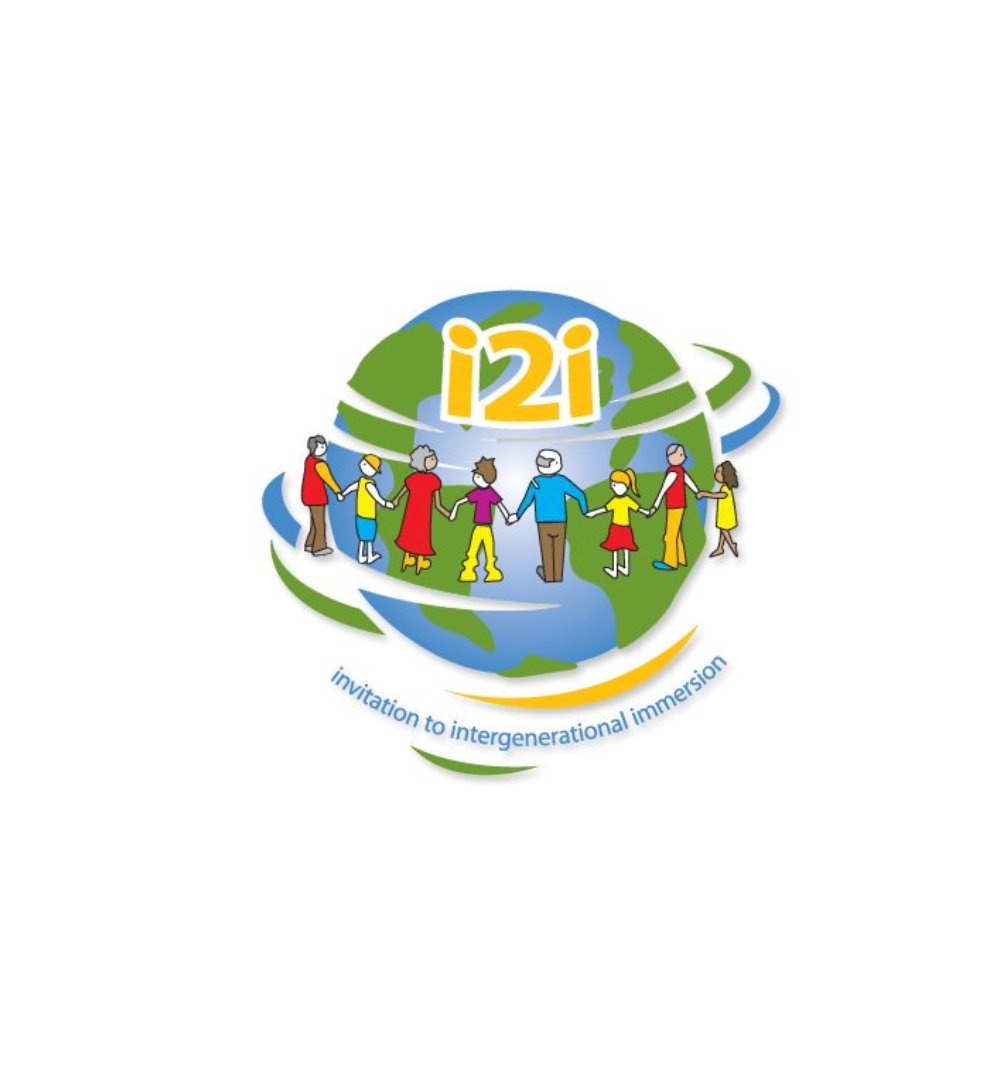History of a Full Intergenerational Immersion Project 2000-2008
In 2000, Sharon MacKenzie, a teacher in School District 22, Vernon, BC, Canada, approached a neighbour who had recently purchased an Assisted Living Facility in the area. Unsatisfied with the impact of occasional visits to senior care facilities with her students, Sharon was looking for something that would connect the two generations in a way that sustained the relationships, and the learning. The Meadows School ProjectTM took wings.
A makeshift classroom for thirty students, 9-12 years of age, was set up in an Assisted Living Residence housing fifty older adults. Students were bussed to the facility to attend their full day of school, interlocking their calendar and activities with those older residents who volunteered to participate in the project. Students attended for five weeks in the fall semester, and three weeks in the spring semester, with two or three visits to the centre in each of the months in between. Special activities were also set up at the school intermittently for older adults who were interested and able to attend.
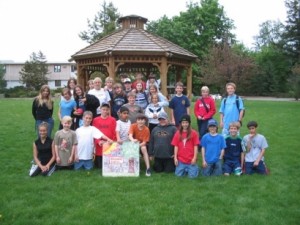 |
Seniors’ attitudes and emotional health visibly improved with the inclusion of the young participants. Human relationships blossomed, older adults had time for them, while older adults were treated with visits that warded off loneliness. Shared learning abounded. Respect was key in building each of these intergenerational bridges
The educational and social goals mandated by the Ministries of Education and Health were met. For the children, the project plan required that students spend time on their dedicated studies, which for a large part adapted well into the senior context. (i.e. study of immigration, study of the body’s growth and aging, literature studies, singing, poetry memory work, spelling bees, and so on.) It also required each student to participate in at least ninety minutes of public service each week (e.g. setting the dining room tables, filling bird feeders, cleaning the classroom, etc.). The third aspect of the project created designated daily times for older adults and children to connect one-on-one, in small groups, or in audience/performer orientations. For the older adults, they became more mentally and physically active, and the socialization opportunities abounded.
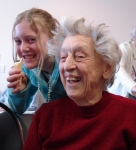 |
Seniors had the option to participate at several levels from one-on-one daily contact for an hour or more, to occasional participation as a observer, or audience. Some older adults chose to opt out completely, and the educator and students were respectful of those who preferred to have their living environment free of the congestion of younger people. At any time, adults could choose to participate or not, and the children had that option too, though they rarely exercised it.
All of this did not just happen, but was the result of a few strategically designed and presented lessons or discussions, developed by the team of care workers, students, older adults, and teacher.
Over the years, the Meadows School ProjectTM has caught the notice of several of Canada’s most recognized citizens, and has been honoured by heartfelt comments of support from participants, and the local community. Children from grade one to twelve have chosen to have on-going involvement with the senior community, and comments from the older adults and their families speak of renewed interest in life, energizing experiences, stimulation of age old memories, and a new found sense of purpose in relationships with the younger generation. The overall benefits regarding improved mental, physical, and social health are evident to even the casual observer.
This project has been chronicled in the documentary “Whose Grandma Are You?” by Vernon film maker Jim Elderton. The B.C. Ministry of Health in 2008 selected the Meadows School ProjectTM to be showcased in their Case Studies of Community Actions in Active Aging report. This was shared with municipalities, health authorities, seniors’ organizations, and other agencies involved with older people in British Columbia. Introduction of the project took place at the Ministry of Healthy Living and Sport Active Aging Symposium held in Vancouver, BC, Canada, June 5th, 2008, and was revisited at the Symposium June 18, 2009.
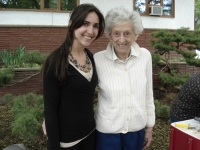 |
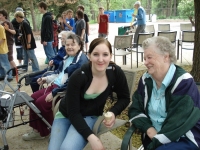 |
In addition, building on the Meadows School ProjectTM, the Ministry partnered with the British Columbia Care Providers Association to assist Sharon in developing an Intergenerational Toolkit for educators, community groups and service providers to use, in order to promote age-friendly communities through intergenerational connections.
